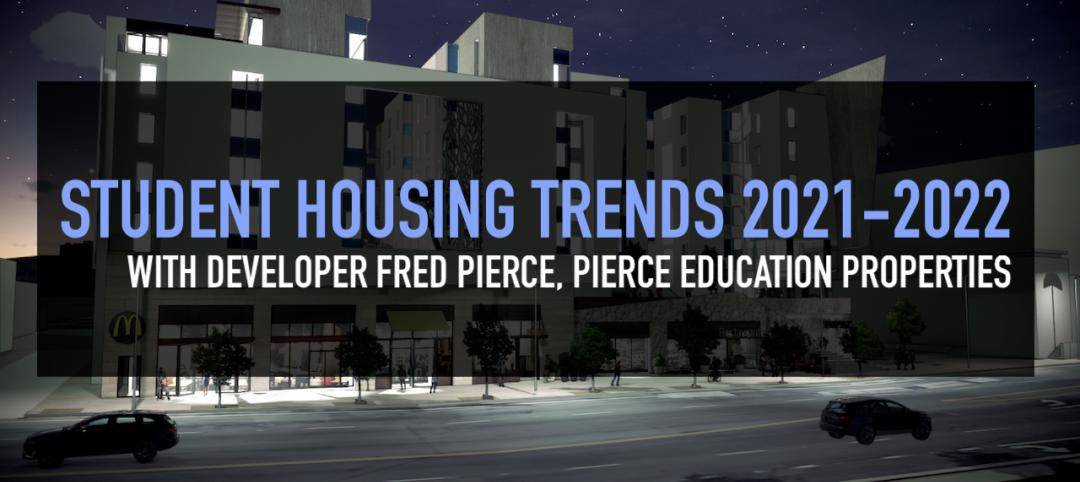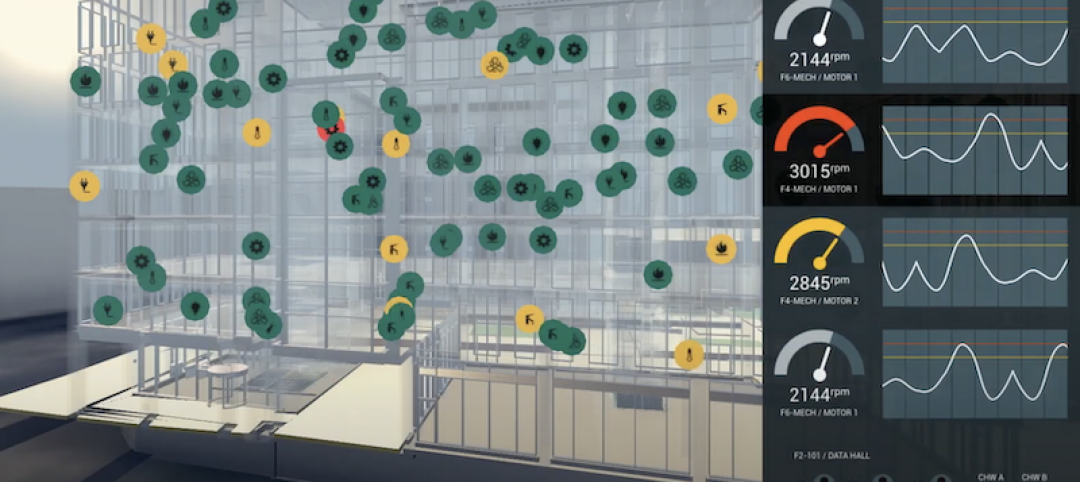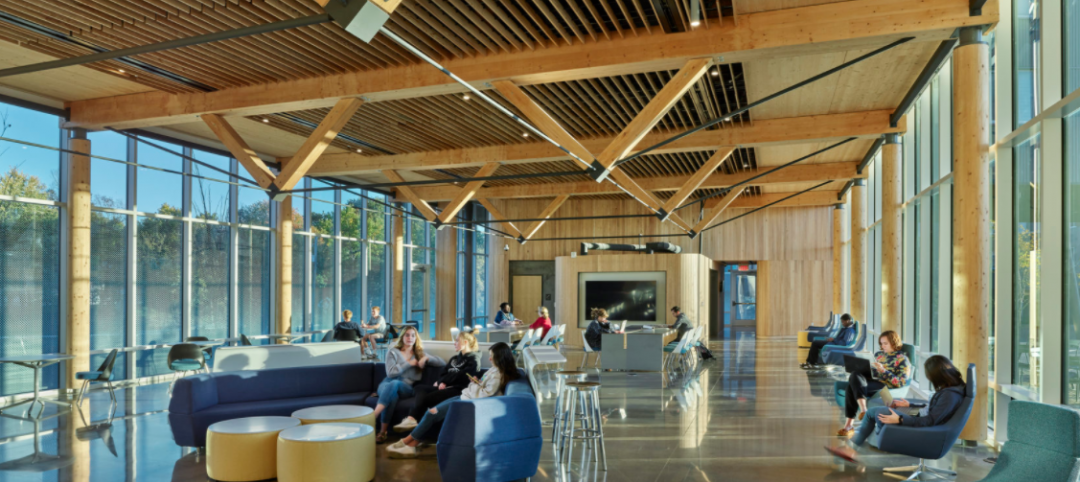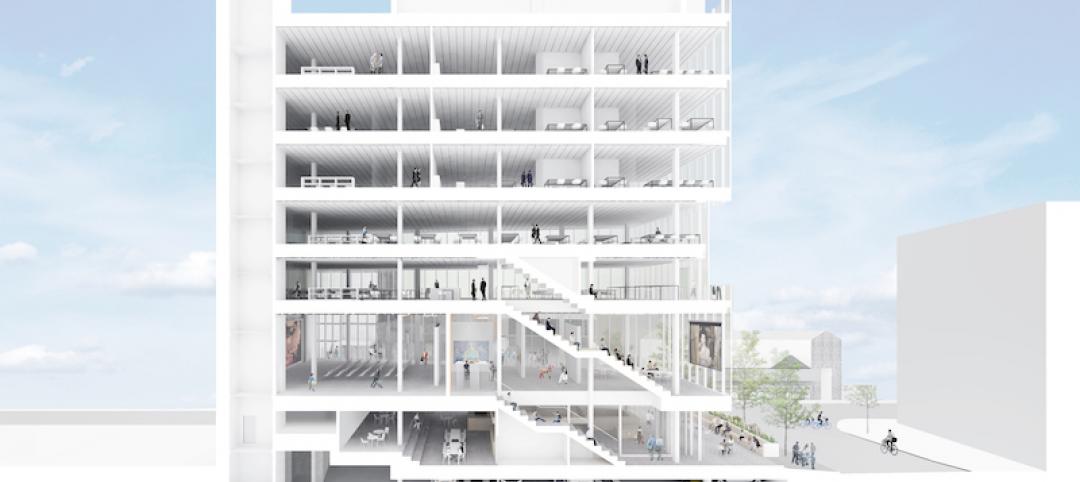The new 18,000-sm Maison de l’Économie Créative et de la Culture en Aquitaine, or MÉCA, brings together FRAC for contemporary art, ALCA for cinema, literature, and audiovisuals, and OARA for performing arts, into one cultural loop. BIG and FREAKS freearchitects were selected to design the art and culture building back in 2012.
A series of steps and ramps leads from the pavement of the promenade, passed the façade that provides glimpses into the stage towers of OARA and the offices of ALCA, and into the 1,100-sm outdoor urban room at MÉCA’s core. During special occasions, the outdoor urban room (and other outdoor spaces) can be turned into a stage for concerts and theatrical performances, or an extended gallery for sculptures and other art installations. The façade comprises 4,800 prefabricated concrete panels interspersed with windows of various sizes to control the amount of light entering inside. The 1.6-ton concrete slabs are sandblasted to expose their raw qualities and to texture the surface with the local sandstone of Bordeaux.
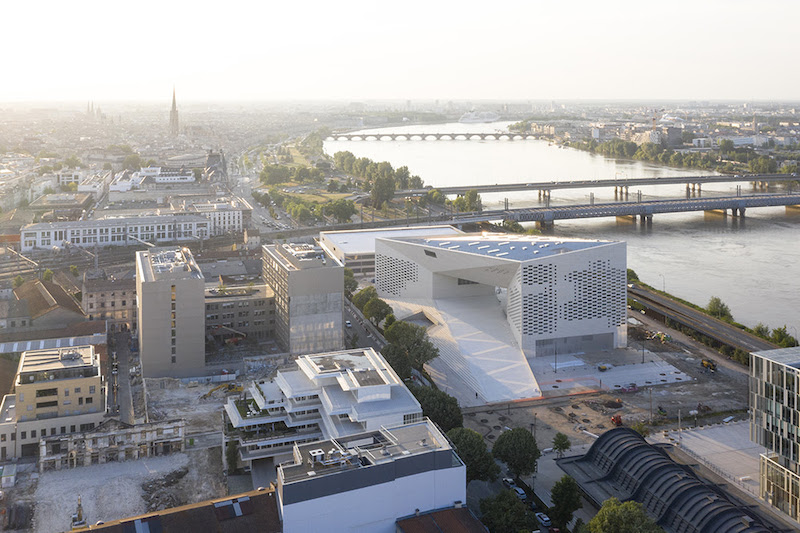
When visitors enter MÉCA from the ground floor, they will be met with a lobby where they can relax in the spiral pit or dine at Le CREM, a restaurant furnished with red furniture and cork chairs, a reference to the wine the city is known for. Near the restaurant, a giant periscope allows visitors to see the activity in the outdoor urban room and vice-versa.
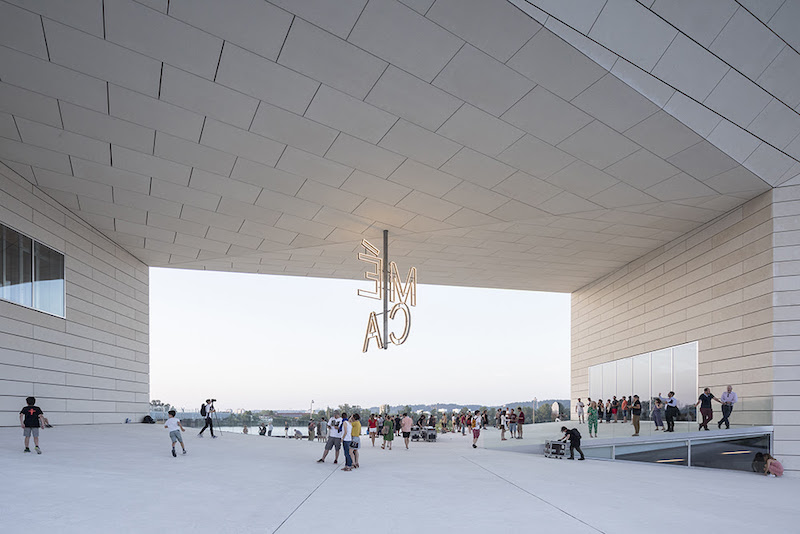
Also on the ground floor is OARA’s 250-seat theater. It features flexible seating configurations and acoustic systems optimized by an all-black checkerboard panel of concrete, wood, and perforated metal. On the second floor is an 80-seat, red-accented cinema and two production offices and project incubation areas. FRAC occupies the upper floors. These spaces include seven-meter-high exhibition spaces, production studios for artists, storage facilities, and a 90-seat auditorium and café.
Topping off the entire building is an 850-sm public roof terrace. The terrace serves as an extension of the exhibitions spaces and provides space for large-scale art installations and outdoor performances.
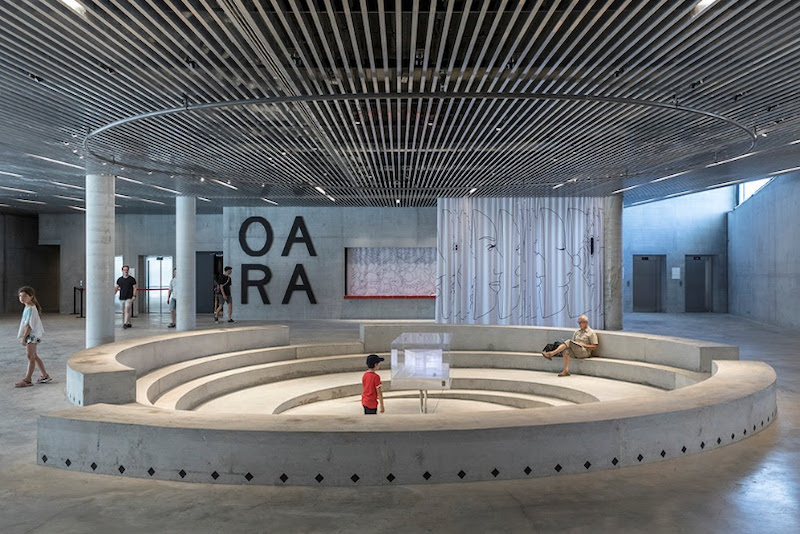
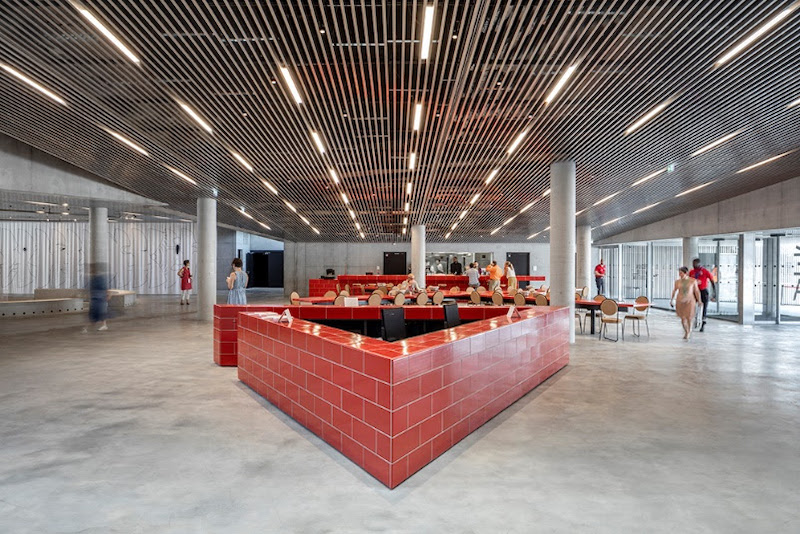
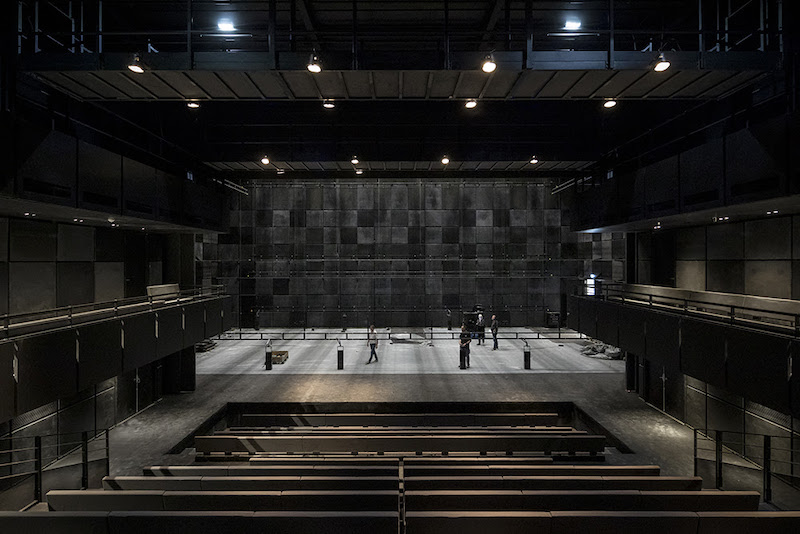
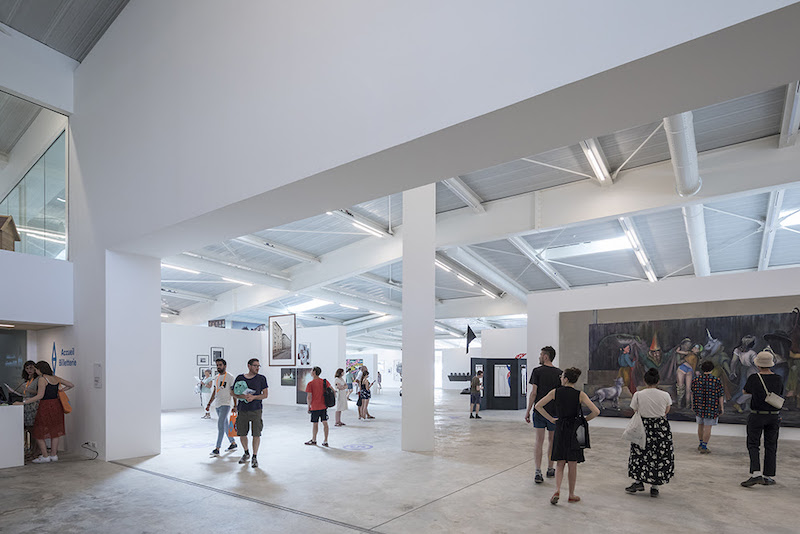
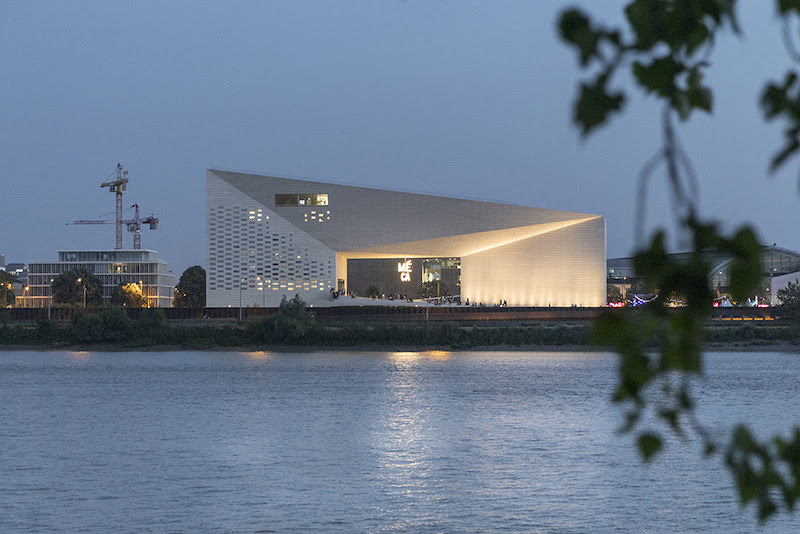
Related Stories
Giants 400 | Aug 30, 2021
2021 Giants 400 Report: Ranking the largest architecture, engineering, and construction firms in the U.S.
The 2021 Giants 400 Report includes more than 130 rankings across 25 building sectors and specialty categories.
Resiliency | Aug 19, 2021
White paper outlines cost-effective flood protection approaches for building owners
A new white paper from Walter P Moore offers an in-depth review of the flood protection process and proven approaches.
Cultural Facilities | Aug 2, 2021
A new venue for the San Diego Symphony’s outdoor performances opens this week
Rady Shell at Jacobs Park was funded almost entirely by private donors.
Cultural Facilities | Jun 28, 2021
Maine’s Children’s Museum & Theatre moves into new location that doubles its size
Interactive exhibits are among its features.
Resiliency | Jun 24, 2021
Oceanographer John Englander talks resiliency and buildings [new on HorizonTV]
New on HorizonTV, oceanographer John Englander discusses his latest book, which warns that, regardless of resilience efforts, sea levels will rise by meters in the coming decades. Adaptation, he says, is the key to future building design and construction.
Multifamily Housing | Jun 3, 2021
Student Housing Trends 2021-2022
In this exclusive video interview for HorizonTV, Fred Pierce, CEO of Pierce Education Properties, developer and manager of off-campus student residences, chats with Rob Cassidy, Editor, MULTIFAMILY Design + Construction about student housing during the pandemic and what to expect for on-campus and off-campus housing in Fall 2021 and into 2022.
Digital Twin | May 24, 2021
Digital twin’s value propositions for the built environment, explained
Ernst & Young’s white paper makes its cases for the technology’s myriad benefits.
Wood | May 14, 2021
What's next for mass timber design?
An architect who has worked on some of the nation's largest and most significant mass timber construction projects shares his thoughts on the latest design trends and innovations in mass timber.
Cultural Facilities | Apr 1, 2021
A Connecticut firm deploys design to assist underserved people and communities
Hartford, Conn.-based JCJ Architecture traces its roots to 1936, when the U.S. was just coming out of an economic depression and its unemployment rate was still 14%. In 2021, with the country trying to recover economically from the impact of the coronavirus, and with questions about social inequity entering the public debate as rarely before, JCJ has focused its design work on projects and clients that are committed to social responsibility and advocacy, particularly for underserved or marginalized communities.
Cultural Facilities | Mar 1, 2021
Moise Safra Center completes in New York City
The project will act as a second home for the Jewish community it serves.


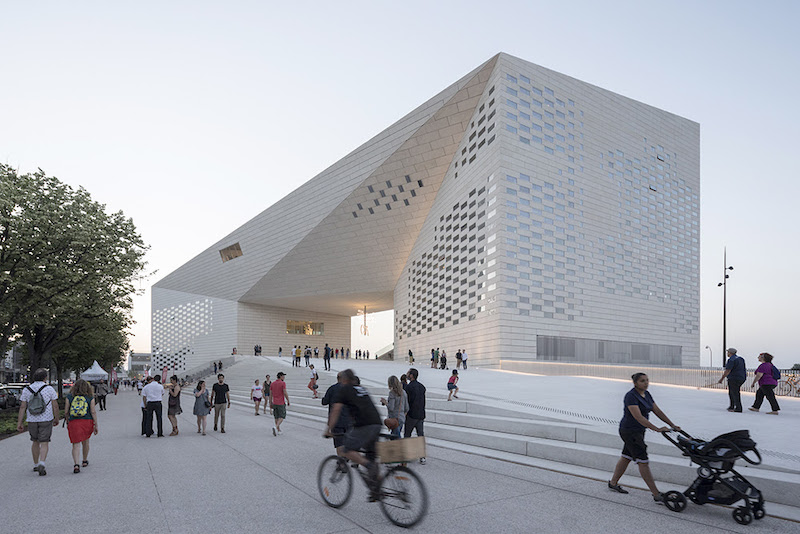
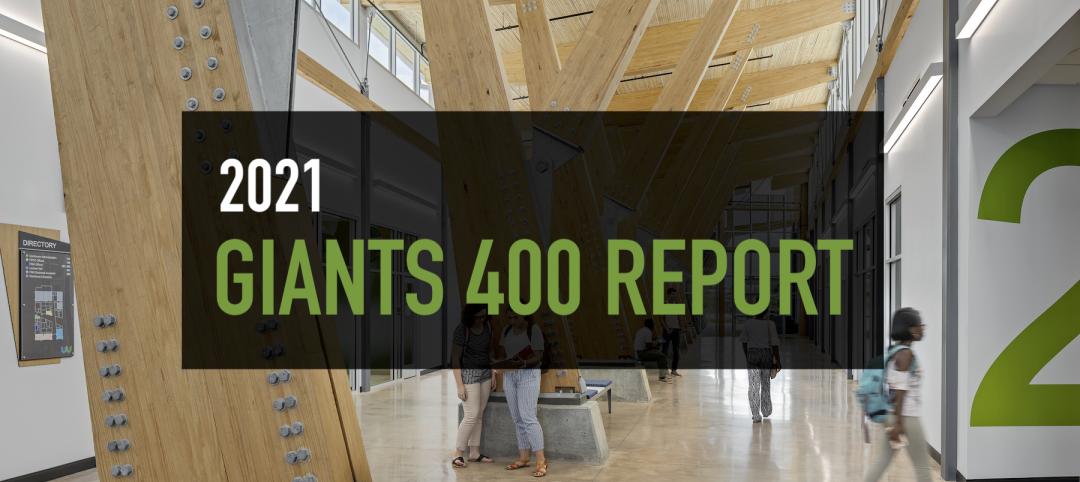
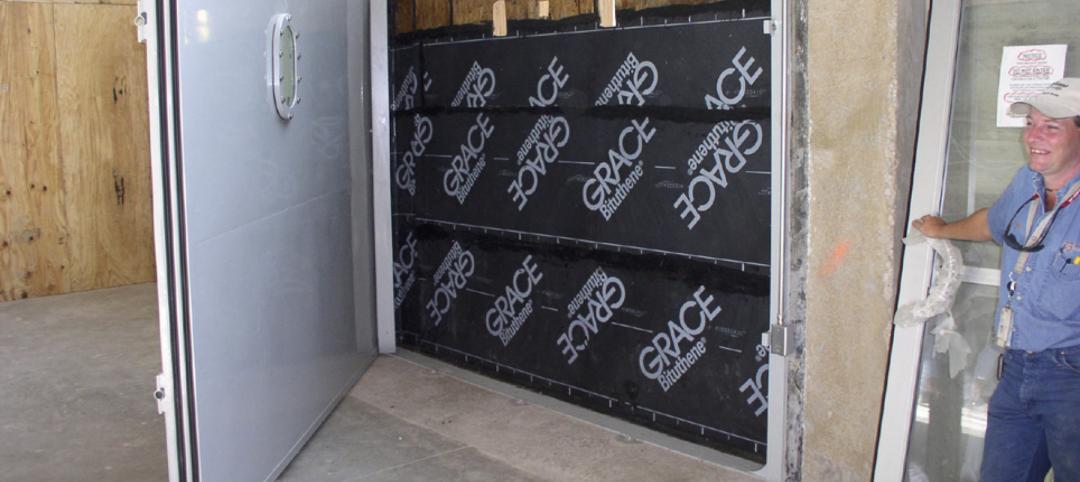
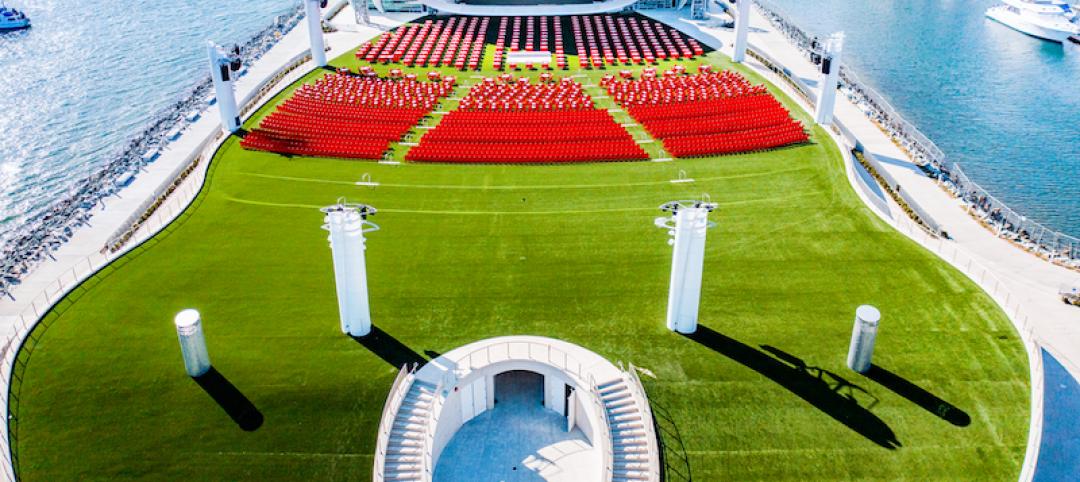

![Oceanographer John Englander talks resiliency and buildings [new on HorizonTV] Oceanographer John Englander talks resiliency and buildings [new on HorizonTV]](/sites/default/files/styles/list_big/public/Oceanographer%20John%20Englander%20Talks%20Resiliency%20and%20Buildings%20YT%20new_0.jpg?itok=enJ1TWJ8)
